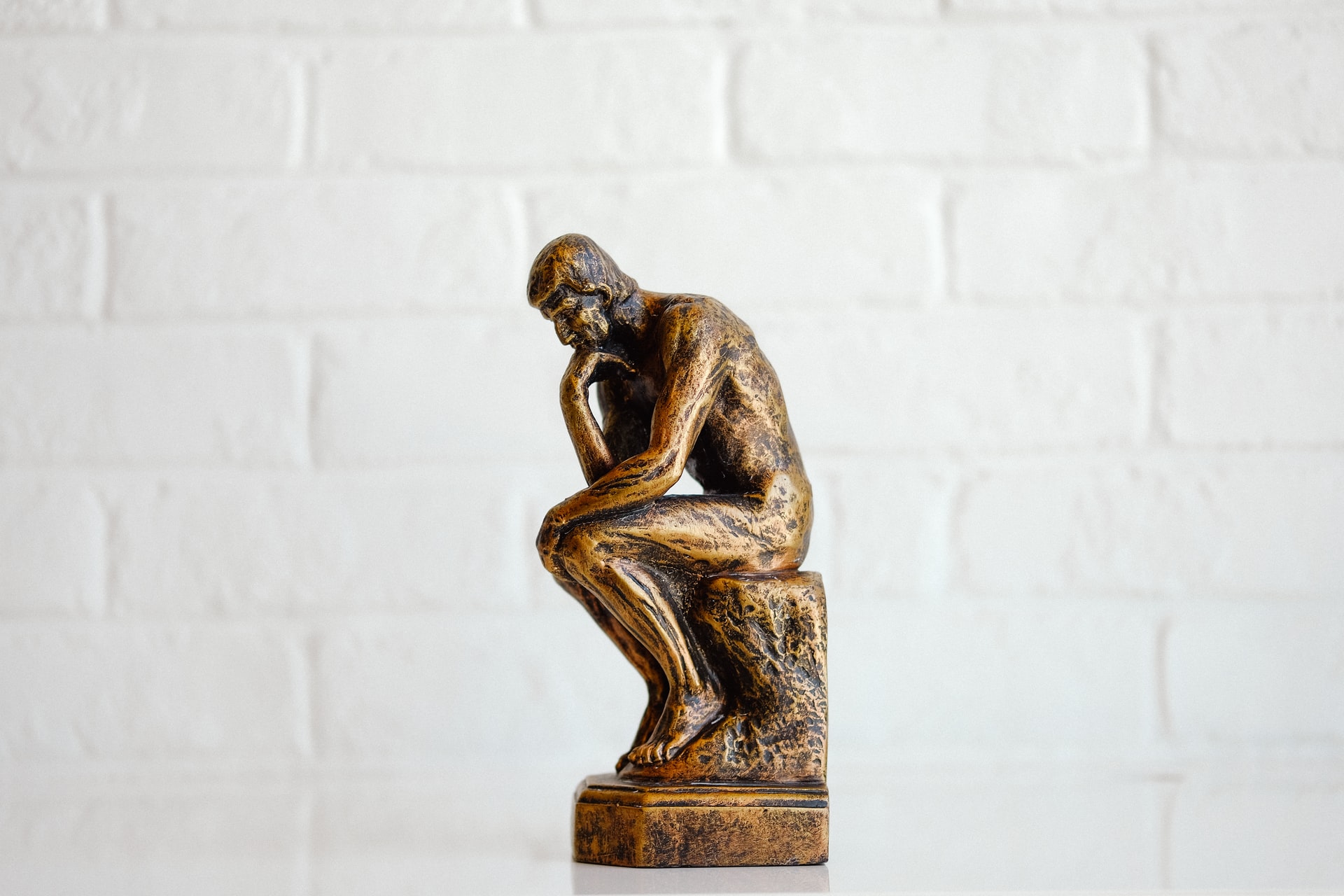

Why is Philosophy important?
Philosophy has shaped human thought since antiquity and even earlier. Its arguments and claims look so powerless on paper and yet when they take the shape of actions embodied in whole civilisation, they are a force to be reckoned with. Philosophy builds and destroys. It is invasive and pervasive in such a way that a human can not escape, no matter how hard he tries. Why is philosophy so important?
When a king takes a stroll through a market, everyone leaves what they’re doing and stops to bow down to the monarch. Those who fail to do so might be punished for insulting the King. And why would a king punish a subject for so slight a crime? The answer is simple. When the public sees that they can refuse to bow down to the King with impunity, something stirs in their bones — like a gentle breeze flowing through the locks of their hair on a bright autumn day — filling the mind that it envelops with courage and determination. It leads to a chain reaction of bolder and bolder actions — all up to the boldest of them all — rebellion.
This is why the brightest of Kings were often cruel tyrants as well. They were hungry for power, and they knew how to retain it through fear. Let me tell you then, of a man who did refuse to bow down to a king — in fact, he deliberately insulted him right to his face — and got admired by the king for it.
Alexander III of Macedon, also known as Alexander the Great was one of the greatest conquerors in world history. His dominion stretched from Greece all the way to the North-west frontier of India. He was the most powerful man in the world at the time, but there was one man who did not care about all that, and that is the man I’m going to talk about now.
Alexander had just finished a successful campaign in Greece, forcing the mighty city-state of Athens to submission, and went to a city called Corinth. There he expected the acquaintance and congratulations of every eminent person in the city. But one such person did not bother. He was an eminent philosopher of the city, and Alexander wanted to meet him, so he went to see him. The philosopher was standing in the sun, and when he met Alexander with his bodyguards and a host of officials and opportunists, he only told Alexander to stand a bit to the side, since he was in the way of sunlight.
Alexander promptly executed him with his own sword.
I’m joking. He didn’t execute him. No, what he did was far more intriguing. He lauded the philosopher for his scorn for wealth and power and said only this, “But verily, if I were not Alexander, I would like to be Diogenes.”
What did Diogenes have that Alexander didn’t?
Diogenes the Cynic was by all accounts one of the strangest philosophers in history. He often slept in the open, ate wherever he wanted to, choosing to lead the life of the poorest. Through this simple lifestyle of his, he aimed to criticize the degradation of a society corrupted by materialism. He had something Alexander could never have — a philosophy that gave him freedom.
But you’d say, “Wasn’t Alexander free by virtue of his sheer absolute power? Who could command him other than Zeus himself?”
Oh, but he was the biggest slave of them all — a slave to a never-ending lust for power. His hunger was so unbound that he never got the opportunity to either properly rule the dominions he had conquered or build proper relationships. This is why his empire disintegrated rapidly after his death.
Diogenes the Cynic passed his teachings down to Crates, who subsequently passed it down to Zeno of Citium. Zeno founded Stoicism — one of the most prominent schools of philosophy from ancient Greece.
And this time, there was an emperor who did learn — who did think, who did introspect.
Marcus Aurelius — the last great Emperor of Rome. His reign is included in the Golden Age of the Roman Empire — a period of relative peace and stability. He was a ‘Philosopher King’. A kind of king hailed by Plato in his work ‘The Republic’ as one who can truly solve the problems of the people. Indeed, he valued the welfare of his people above his own glory and riches and led a simple lifestyle. In his book, Meditations, he declares virtue to be the highest good, with justice, restraint, and reflection being some of them.
But let us step back for a second. In our haste to justify employing the current of philosophy to navigate valleys of human life, we forgot to consider the glacier. What is this glacier?
Why, of course, it’s the very meaning of the word! What is philosophy? What does it even mean? The word philosophy comes from the Greek word philosophia meaning ' love of wisdom '. Now, of course, that’s just the Greek term for it but it does tell you what philosophy started as in almost all cultures around the world. Philosophy started off as the mental dominion of curious minds — those who saw patterns shrouded by overwhelming distractions, those who created entire imaginary worlds and used these patterns and worlds to try to arrive at some answers to the staggering complexity of existence.
Almost everything you study today — science, mathematics, religion, literature, aesthetics, economics, and law all take birth in philosophy. To those uninitiated in this sublime subject, it does appear to be an absurd proposition. How can all these subjects take root in philosophy? Isn’t philosophy primarily about people making up ideas about society in the comfort of their armchairs? How could subjects like science, mathematics, religion, and literature — subjects that require active exploration in the practical aspects of life could be related to this pastime of old men?
But how could they not be related so? Think about it. Every one of these subjects works under certain foundations — certain pillars without which their institutions would crumble and vanish away into oblivion. Take science as an example. There are some modern scientists that have this distasteful penchant for disregarding philosophy as a serious subject of study. Ignorance and prejudice steer them away from the truth that science works under the umbrella of several assumptions, and those assumptions collectively formed the scientific method as we know it. It took several centuries of countless debates between philosophers in different parts of the world to arrive at the modern conception of the scientific method that has yielded seemingly miraculous results.
But let us consider an example closer to home for the general public. Have not the rebellious among us faced reprimands by beings of authority — our parents, teachers, bureaucrats, priests, entrepreneurs, and politicians for even thinking of violating the norms and diktats of the land, the culture, and the law? They speak as if these norms and values have always been set in stone, as if the values are a God in and of themselves, eternal and unquestionable.
They are indeed unaware that these norms, these values did not emerge out of nothing. They emerged out of philosophers discussing and debating what is right and what is wrong and they used all kinds of philosophies to justify setting these values in stone. They are indeed unaware that their codes of conduct, their civilization, their architecture, their institutions, their definitions of normality and abnormality all have a philosophical underpinning to them, and where there is philosophy, there is argument, there is room for an open mind, for change, for progress.
Some consider philosophy to be important because it aids in the progress of human society. Some consider it important because it increases the problem-solving faculties of our delicate noggins. Some consider it important because it pacifies the violent human heart. But as valid as these arguments are, I consider them insignificant in the grand scheme of things. I consider these arguments a sorry attempt at justifying the existence of philosophy from a utilitarian standpoint. If humans were completely utilitarian, wouldn’t we be no better than machines? Indeed, much of what makes a civilization beautiful, elegant, and desirable in the first place is not its technology or infrastructure that makes it functional, but the seemingly useless things like art and philosophy that do not aid survival. Now don’t get me wrong. I don’t think art and philosophy are useless. Hell, I wouldn’t be writing this article if I considered them so. What I mean is that art and philosophy do not appear to be useful if the only things you care about are survival and base pleasures. Of course, these are not the only things most humans care about. Humans care most about survival, but they also care about meaning. Art and philosophy are attempts at obtaining this meaning. But a utilitarian stand does not take into account metaphysical needs.
However, there is a problem. We’ve considered several arguments as to why philosophy is significant, but we haven’t considered why philosophy is significant to philosophers. Did they think about all this before venturing on a journey of philosophical analysis of the world?
I believe that to be not the case with most philosophers. Most philosophers studied philosophy primarily because their minds were predisposed to be interested in philosophy. They were deep thinkers right from childhood. In childhood, like most children, they asked some of the deepest questions of existence. Why are we here? Who created us? Is my red the same as your red? Most parents dismiss these questions with frivolous answers that later discourage children from pursuing such questions further. But some children refused to back down. The urge inside them to find the answers to these questions was so large that it persisted. They started asking more and more profound questions, and eventually, they introduced themselves to philosophy as the final resort. Perhaps the reasons why most philosophers pursue this sublime subject is primitive — perhaps it is a culmination of our primitive architecture — survival instincts like pattern recognition eventually become desires for philosophical inquiry. Whatever it may be, one thing is for certain — whether the seed of philosophy is primitive or complex, the tree itself transcends such base dichotomies. Why so?
Let us come to the original question once again. What is philosophy? I declare here and now that philosophy is the ultimate destination of the human mind — the final frontier of consciousness. Through our feeble minds, we construct these artificial boundaries between ourselves and the world around us. We construct rigid norms, institutions, society, but philosophy deconstructs them all — it destroys these illusions in the human mind — and if you venture far enough, brings you to absolute consciousness of unity — of the complete and single existence. The light is blinding, it disorients the human mind — it renders one perhaps a little insane, and completely confused — but the awareness is total, and existence becomes bliss — evolution completes itself.
Philosophy is everywhere. You can’t avoid it, only ignore it.
Comments